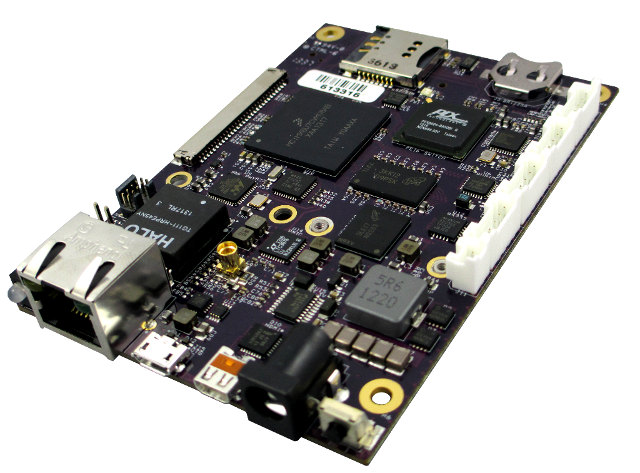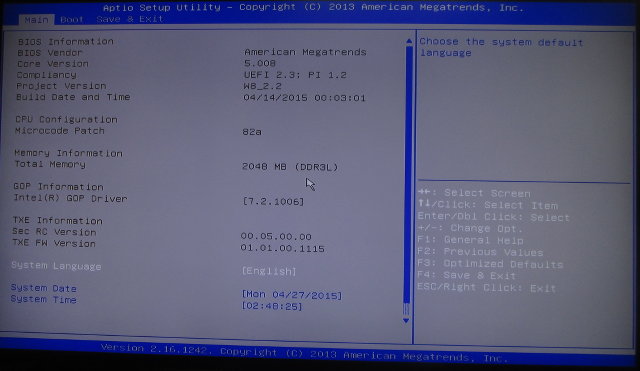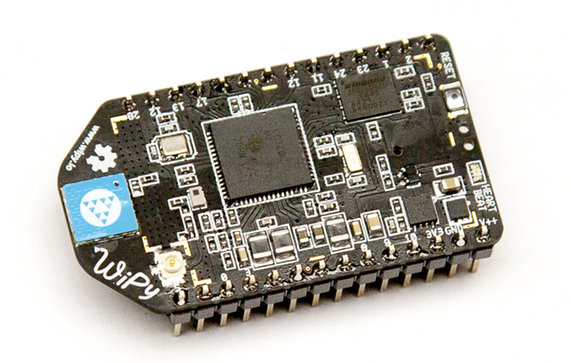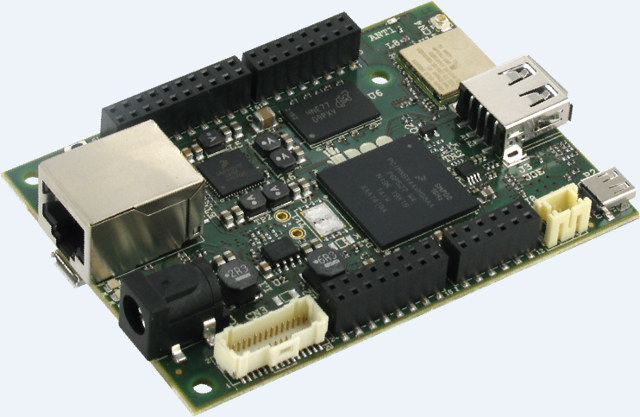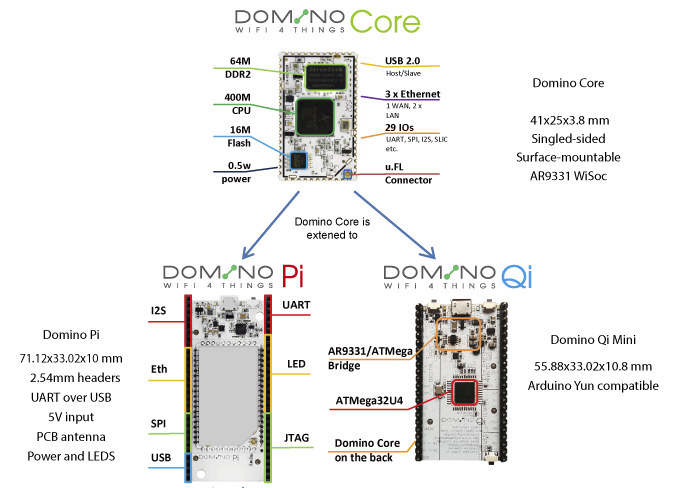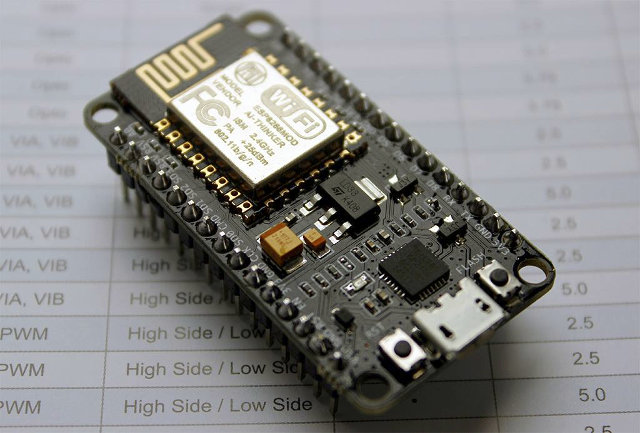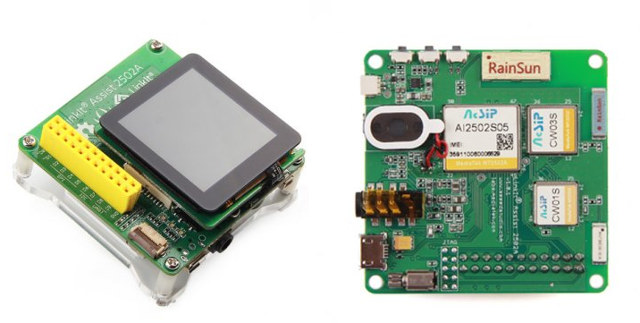Gateworks recently launched another Freescale i.MX6 board part of theur Ventana family with Ventana GW5220 single board computer with Freescale i.MX6 dual processor, HDMI out, Ethernet, and a PCIe slot that takes modules adding WiFi 802.11 b/g/n/a, 4G Wimax, and 3G (CDMA/GSM) connectivity, as well as other compatible PCIe modules. Gateworks GW5520 board specifications: SoC- Freescale i.MX6 Dual with 2x Cortex A9 core @ 800MHz and Vivante GPU System Memory – 512 MB (default) to 2GB DDR3-800 SDRAM Storage – 256 MB (default) to 2GB Flash, micro SD slot, serial configuration EEPROM Connectivity – 1x Gigabit Ethernet port (RJ45) Video Output and Input – HDMI 1.4 out, CVBS, Y/C, and YPbPr inputs, LVDS output (TIA/EIA 644-A) Audio – HDMI, analog stereo Line In/Out, or Headphone/Mic Expansion – 2x Mini PCIe sockets including one supporting USB and SIM socket, and the other supporting PCIe, mSATA and USB signals. Other I/O ports: […]
Wintel W8 Review – Dual Boot Android & Windows TV Box
Wintel W8 (aka Kingnovel K8) is an Intel Atom Z3735F mini PC inspired from Sunchip Wintel CX-W8 (the hardware is a little different), but instead of just running Windows 8.1, the device can dual boot Android 4.4 and Windows 8.1 with Bing. I’ve already taken pictures or torn down Wintel W8, so today, I’ll focus on the software part of the review, first checking dual boot functionality and Windows 8.1 briefly since it should be very similar to MeLE PCG03, before spending more time on Android as it’s my first Android Intel platform. Dual boot in Wintel W8 When you boot the device, you can select Android or Windows icon, with a 10 second timeout that will boot your latest choice. There’s no menu within Windows to start Android, and vice versa, so to dual boot you need to reboot first, and select the operating systems right after UEFI. The […]
Improve Mediatek MT6752 GPS Accuracy by Turning WiFi Off?
Mediatek smartphones used to have a terribly slow GPS fix, and it would often take over 10 minutes to get a fix if any, and one workaround was to enable Mediatek EPO. However, in my Iocean M6752 review, I found out GPS fix was not super fast even without Internet connection, but accuracy is quite a disaster as Nike+ Running screenshot below clearly shows. I’m running around a stadium so the shape should be elliptic…, but data point are all over the place. Since the review, I’ve kept using the smartphone with Nike+ Running, and each time it’s a disaster, and once the app even reported a 81 km for an actual 10 km run… I’ve also used Google Maps once or twice, and found accuracy to be poor as well. However, I usually leave Wi-Fi on, and for some reasons today, I decided to turn Wi-Fi off before driving […]
WiPy Wi-Fi Board for IoT Runs MicroPython on Texas Instruments CC3200 (Crowdfunding)
If you’ve interested in connecting devices via Wi-Fi, you’re being spoiled as “Internet of things” boards keeps getting designed and produced. The latest board with WiPy, a small board powered by Texas Instruments CC3200, running MicroPython, and consuming less than 1mA in suspended mode with Wi-Fi connected. WiPy specifications: MCU – TI CC3200 ARM Cortex-M4 @ 80 MHz with 256KB RAM, Wi-Fi and TCP/IP stack Storage – 2MB flash Connectivity – WiFi 802.11b/g/n 16Mbps (AP, Station and WiFi-Direct), on-board antenna and u.FL connector Expansion – 2x 14-pin headers (2.54mm pitch) with Up to 25 GPIOs 2x UART, SPI, I2C, I2S, and SD card 3×12 bit ADCs Others 4×16 bit timers with PWM and input capture RTC Hash and encryption engines: SHA, MD5, DES, AES Reset switch, heartbeat LED Power Supply – 3.6 – 5.5V DC input; 3.3V output up to 250mA Power Consumption – Active: 14 mA; Suspended (Wi-Fi connected): […]
UDOO Neo Combines Arduino, Raspberry Pi, Wi-Fi, Bluetooth and Sensors into a Single $49 Board (Crowdfunding)
UDOO Neo was unveiled last February as the first hobbyist board features Freecale i.MX6 Solox Cortex A9 + Cortex M4 processor. I was expecting UDOO to design support board since their earlier UDOO board combined Freescale i.MX6 processor with an Atmel MCU, and the new processor allowed for integrating the same functionality into a single chip. The board is now on Kickstarter where you can pick UDOO Neo Basic for $49 (Early bird is $35), or UDOO Neo for $59 (Early bird was $45) adding an Ethernet port, some sensors, and 1GB RAM, instead of 512 MB for the Basic version. But both versions of the board basically share the same specifications: SoC – Freescale i.MX 6SoloX ARM Cortex-A9 core @ 1GHz with 2D/3D GPU and ARM Cortex-M4 Core @ 166 MHz System Memory – 512MB (Basic) or 1GB DDR3 Storage – micro SD slot, 8-bit SDIO interface (on expansion headers) […]
Domino Core Wi-Fi Module Powers an Arduino Yun Compatible Board (Crowdfunding)
The makers of GL.iNet OpenWRT compatible router have decided to build a module and two development boards based on Qualcomm Atheros AR9331 WiSoC. Domino.IO is composed of a Domino Core Wi-Fi module that can be used in your own project, but if also part of Domino Pi, a breadboard-friendly board featuring the module, and Domino Qi mini, a similar board with an Atmel ATMEga32U MCU making it compatible with Arduino Yun board. Domino Core specifications: SoC – Qualcomm Atheros AR9331 MIPS processor @ 400MHz with System Memory – 64MB DDR3 Storage – 16MB flash Connectivity – 802.11 b/g/n Wi-Fi with u.FL connector I/Os via half through holes – USB 2.0 host/slave, 3x Ethernet, 29 IOs including UART, SPI, I2S, SLIC, etc… Dimensions – 41 x 25 x 3.8 mm Domino Pi and Qi mini summarized specifications are shown in the table below. Domino Pi Domino Qi Mini Wi-Fi Module Domino […]
NodeMCU is both a Breadboard-Friendly ESP8266 Wi-Fi Board and a LUA based Firmware
NodeMCU is a LUA based interactive firmware for Expressif ESP8622 Wi-Fi SoC, as well as an open source hardware board that contrary to the $3 ESP8266 Wi-Fi modules includes a CP2102 TTL to USB chip for programming and debugging, is breadboard-friendly, and can simply be powered via its micro USB port. Let’s checkout the hardware first. The latest version of the board (V1.0) has the following specifications and features: Wi-Fi Module – ESP-12E module similar to ESP-12 module but with 6 extra GPIOs. USB – micro USB port for power, programming and debugging Headers – 2x 2.54mm 15-pin header with access to GPIOs, SPI, UART, ADC, and power pins Misc – Reset and Flash buttons Power – 5V via micro USB port Dimensions – 49 x 24.5 x 13mm The hardware documentation for the board can be found on nodemcu-devkit repo, including schematics and PCB layout designed with Altium Designer, […]
Mediatek LinkIt Assist 2502 Open Source Hardware Board Targets Wearables and IoT Applications
After LinkIt ONE, Mediatek Labs has introduced a new IoT development kit based on their Aster M2502 ARM7 processor with LinkIt Assist 2502 comprised of AcSiP MT2502A IoT SiP Core module, a 802.11b/g/n module, a GNSS module, and an exchangeable 240×240 16-bit color capacitive touch LCM Board. The AcSiP module can also be purchased separately, so you could use LinkIt Assist 2502 board for early development, because moving to your custom hardware based on AcSiP MT2502A module. LinkIt Assist 2502A specifications: MCU – AcSiP AI2502S05 module with MT2502A (Aster) ARM7 EJ-STM processor @ 260MHz, 4MB RAM, 16MB flash Display – 240×240 LCD module; 16-bit color depth; transflective; based on ST7789S driver IC. Connectivity Wi-Fi 802.11 b/g/n via AcSiP CW01S module based on MT5931 SoC Bluetooth 2.1 SPP and 4.0 GATT dual mode (part of MT2502A) GPS via AcSiP CW03S module based on MT3332 chip supporting GPS, GLONASS, and BeiDou. GSM […]


